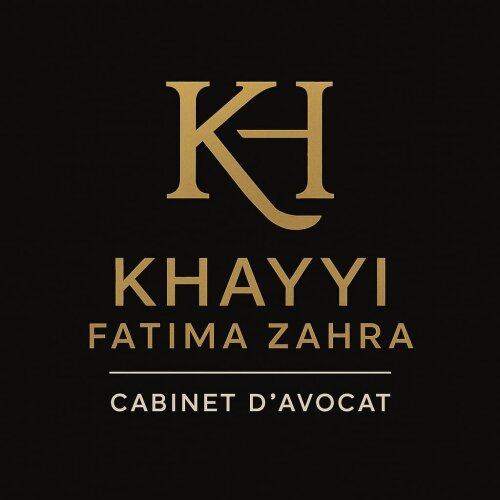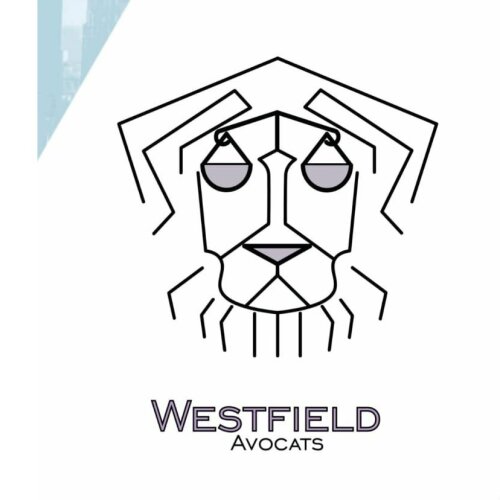Best Commercial Litigation Lawyers in Rabat
Share your needs with us, get contacted by law firms.
Free. Takes 2 min.
List of the best lawyers in Rabat, Morocco
About Commercial Litigation Law in Rabat, Morocco
Commercial litigation in Rabat, Morocco refers to the legal process of resolving business disputes through the court system. It involves cases arising from commercial relationships, such as contracts between companies, partnership disagreements, debt recovery, shareholder disputes, and more. The process is governed by Moroccan law, particularly the Commercial Code, the Civil Procedure Code, and specific legislative provisions regulating trade and business activities. Rabat, as the capital and a key economic center, sees a significant volume of commercial disputes making this a specialized legal area with important practical and economic implications.
Why You May Need a Lawyer
Commercial litigation can be complex and challenging, involving legal procedures, strict timelines, and significant financial stakes. You may need a lawyer in situations such as:
- Breach of contract by one of the parties in a business agreement
- Partnership or shareholder disputes within a company or joint venture
- Failed business transactions or negotiable instrument disputes
- Claims for compensation involving suppliers, clients, or subcontractors
- Disputes over intellectual property rights linked to commercial activity
- Debt recovery actions against defaulting debtors
- Issues related to business insolvency or liquidation
- Tortious interference with business or unfair competition
- Disagreements with government agencies or regulators related to business operations
Lawyers offer essential guidance, draft litigation documents, represent clients in court, and seek to protect their commercial interests throughout the litigation process.
Local Laws Overview
Commercial litigation in Rabat is primarily governed by Morocco's Commercial Code, which sets out the legal framework for commercial activity and related disputes. The Civil Procedure Code outlines procedural aspects such as the filing of claims, evidence, proceedings, and appeals. Some specific features include:
- Specialized Commercial Courts: In Rabat, dedicated commercial courts handle business disputes, improving efficiency and expertise in resolving such matters.
- Mandatory Pre-litigation Procedures: In certain cases, attempts at amicable settlement may be required before filing a lawsuit.
- Time Limits: Strict deadlines, known as prescription periods, apply to filing commercial claims and must be observed to avoid being barred.
- Written Proceedings: Commercial litigation usually relies heavily on written submissions and documentary evidence.
- Enforcement of Judgments: Moroccan law provides for court-ordered enforcement of judgments, including asset seizure in case of non-compliance.
- Alternative Dispute Resolution: Arbitration and mediation are recognized and encouraged alongside traditional court litigation.
It is crucial to seek advice on the specific laws and procedures that apply to your case as local rules may affect your rights and obligations.
Frequently Asked Questions
What types of disputes fall under commercial litigation in Rabat?
It covers disputes related to business contracts, payment defaults, corporate governance, partnerships, shareholder issues, supply agreements, commercial leases, debt recovery, and similar matters between business entities or involving commercial activities.
Which courts handle commercial disputes in Rabat?
Specialized commercial courts in Rabat deal exclusively with business-related cases, ensuring expert handling of such disputes.
How long does a commercial litigation case typically take to resolve?
Timelines vary depending on complexity, but cases can take several months to a few years. Factors affecting duration include the amount of evidence, court caseload, and whether appeals are filed.
Can commercial disputes be settled out of court?
Yes. Moroccan law encourages conciliation, mediation, and arbitration. Many disputes are resolved through settlement before reaching final judgment.
Do I need to attend court hearings in person?
Generally, legal representatives such as lawyers handle most aspects of the case, but you may need to attend for testimony or at key stages if the court requires your presence.
What documents are needed to start a commercial litigation case?
Key documents include contracts or agreements in dispute, correspondence, invoices, proof of delivery or performance, and any records supporting your claim or defense.
What happens if a party does not comply with the court's judgment?
The successful party can request the court to enforce the judgment, which may include seizing bank accounts or assets of the losing party.
Are foreign companies allowed to litigate in Rabat?
Yes. Foreign and local entities have equal access to Moroccan courts for resolving commercial disputes arising in Morocco.
What are the costs involved in commercial litigation?
Costs typically include court fees, attorney’s fees, expert witness fees, and potential enforcement expenses. The losing party may be ordered to pay some or all of the successful party’s legal costs.
Can I appeal a commercial court decision?
Yes. Judgments from commercial courts can be appealed to higher courts under the procedures set out in the Civil Procedure Code.
Additional Resources
If you are seeking further information or assistance, the following resources may be helpful:
- Commercial Court of Rabat - For procedures, filing requirements, and case status inquiries
- Moroccan Ministry of Justice - For general information on laws and legal proceedings
- Order of Lawyers (Bar Association) of Rabat - For legal referrals and qualified commercial litigation attorneys
- Chamber of Commerce, Industry, and Services of Rabat - For business support and dispute resolution guidance
- Arbitration and Mediation Centers - For alternative dispute resolution services in commercial matters
Next Steps
If you are faced with a commercial dispute in Rabat, Morocco, it is important to act promptly. Gather all relevant documents and seek professional legal advice from a qualified commercial litigation lawyer. An initial consultation can help you evaluate your case, understand your rights and options, and determine the best course of action. You may also consider exploring mediation or other amicable resolutions before starting court proceedings. Keep careful records of all communications related to the dispute. Finally, ensure you observe all legal deadlines to protect your interests throughout the process.
Lawzana helps you find the best lawyers and law firms in Rabat through a curated and pre-screened list of qualified legal professionals. Our platform offers rankings and detailed profiles of attorneys and law firms, allowing you to compare based on practice areas, including Commercial Litigation, experience, and client feedback.
Each profile includes a description of the firm's areas of practice, client reviews, team members and partners, year of establishment, spoken languages, office locations, contact information, social media presence, and any published articles or resources. Most firms on our platform speak English and are experienced in both local and international legal matters.
Get a quote from top-rated law firms in Rabat, Morocco — quickly, securely, and without unnecessary hassle.
Disclaimer:
The information provided on this page is for general informational purposes only and does not constitute legal advice. While we strive to ensure the accuracy and relevance of the content, legal information may change over time, and interpretations of the law can vary. You should always consult with a qualified legal professional for advice specific to your situation.
We disclaim all liability for actions taken or not taken based on the content of this page. If you believe any information is incorrect or outdated, please contact us, and we will review and update it where appropriate.











